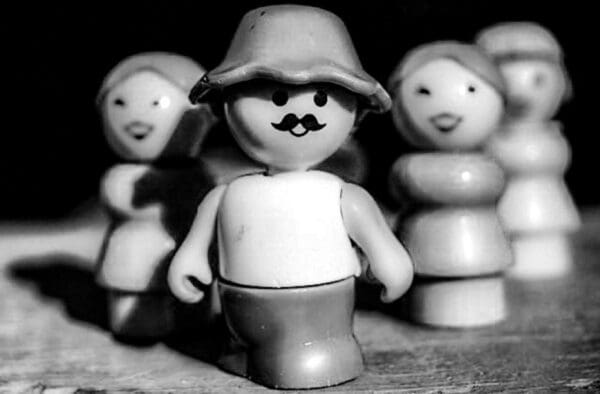I’m beginning to believe the traditional organizations which have added value to both society and individuals are in deeper trouble that we originally thought.
When I say traditional organizations, I’m talking about service clubs, churches and fraternal organizations; nonprofits which add value to society as a whole (especially to those least able to afford it), and create an unparalleled environment for the free exchange of ideas among people with different professions and experiences.
If you’re a member of Rotary International, it’s not just their current mission of service to others and integrity, it’s the people who you get to break bread with at the meeting.
Historically, Rotary was instrumental in stopping Polio worldwide. It was an easily articulated mission when people knew of this horrible disease and its dreadful effects. Their success in their initial sharply focused mission has Rotary International with a less focused mission today, and sometimes that “squishy” part of the Mission Statement is not appealing to the Twenty-Somethings; you know, those annoying know-it-alls who are two generations behind me and just entering the workforce.
At my first job I was told “there are five service clubs in town. You may visit one or all of them, but you will join one, and you will attend the meetings.”
It was literally part of my job. Community was that important.
-L-L-L-
We stopped showing up for the service clubs, and the service clubs stopped being able to pursue their mission, provide scholarships, and add value to the community … or at least at the level they had historically.
-L-L-L-
I’ve inflicted exactly the same on my senior-level employees over the years, and some are still involved. Two became district “governors” in their respective organizations. They did great work as their life allowed them to, and their involvement will be directly related to what their lifestyle (and spouse) permits at that point in their life.
During my career, I’ve belonged to Kiwanis, Lions, and Rotary. I’ve been thanked by recipients of the Lions club sight conversation program. I’ve heard first-hand how city youth have made wonderful friendships at Kiwanis “Fresh Air Farm.”
The formula for all the service clubs is basically the same – raise money and deliver services to deserving disadvantaged in our communities and the world. Of course, we discuss all of this over a meal. Just as humans have done for the past 10,000 years.
This model flourished following the World War II – our returning soldiers recognized so much more could be accomplished if we worked together, each bringing their own individual skills and knowledge to bear on the problem chosen to solve.
I think the open motto of my college fraternity, Phi Delta Theta, is completely appropriate here – literally translated to “One Man (is) No Man, and its free translation, “We enjoy life by the help and society of others.”
The World War II veterans knew there were things “somebody” needed to do, and that they were somebody. They knew that together, there was nothing they could not accomplish.
So, they replicated what the military taught them, banding together to do what one man could not.
Somewhere along the line, we lost that. I think there was a diminishing level of participation starting with the beginning of the Baby Boomer generation, and it hit bottom with the end of the generation, which is where I fit in the scheme of things.
We stopped showing up for the service clubs, and the service clubs stopped being able to pursue their mission, provide scholarships, and add value to the community … or at least at the level they had historically.
All of these organizations are under intense pressure right now with declining membership, which is the first step on the slide to declining relevance.
Keep in mind the mission is the outward projection of value. The inward value is what the members received from each other – I’ve met amazing people sitting at lunch and sharing the foibles of my world with someone who may be in a completely different line of work with the common thread being people. I can’t stress how powerful those conversations can be for so many of us.
Kiwanis International, Lions International and Rotary International – and I’m sure a host of others – have had really smart folks studying this problem, and so far they have not come up with a solution.
I don’t have the magic bullet to fix it either, but I do have a suggestion – if you value what the service clubs, your church, or any organization you belong to delivers to the community, get involved.
Your involvement is priceless. No one else can do it.
They all depend on somebody to do something.
And I know you’re somebody.
In the meantime, you’ll find me at a Kiwanis Meeting Thursday at Noon, at least a couple of lodge meetings every month, and in the fifth pew back (with my Granddaughter) at church, and likely chairing a meeting of technology professionals 12 times in the upcoming year.
I hope to see “somebody” there.


